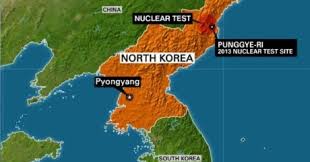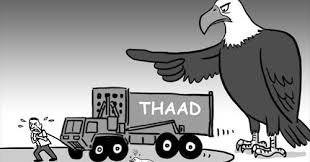The richest people on Earth got richer in 2014, adding $92 billion to
their collective fortune in the face of falling energy prices and
geopolitical turmoil incited by Russian President Vladimir Putin.
Video: http://www.bloomberg.com/video/popout/4PRJi7eqTcWSR0cwVL05iA/10.938/
The
net worth of the world’s 400 wealthiest billionaires on Dec. 29 stood
at $4.1 trillion, according to the Bloomberg Billionaires Index, a daily
ranking of the planet’s richest.
The biggest gainer was
Jack Ma,
the co-founder of Alibaba Group Holding Ltd., China’s largest
e-commerce company. Ma, a former English teacher who started the
Hangzhou-based company in his apartment in 1999, added $25.1 billion to
his fortune, riding a 56 percent surge in the company’s shares since its
September initial public offering.
Ma, 50, with a $28.7 billion
fortune, briefly passed
Li Ka-shing as Asia’s richest person.
“I am nothing but happy when young people from China do well,” Li, 86, said through his spokeswoman in Hong Kong.
Global
stocks rose in 2014, with the MSCI World Index advancing 4.3 percent
during the year to close at 1,731.71 on Dec. 29. The Standard and Poor’s
500 Index rose 13 percent to close at 2,090.57. The Stoxx Europe 600
gained 4.9 percent to close at 344.27.
Two of the year’s other biggest gainers were
Warren Buffett and
Mark Zuckerberg
of the U.S. Buffett, the chairman of Berkshire Hathaway Inc., added
$13.7 billion to his net worth after the Omaha, Nebraska-based company
soared 28 percent as the dozens of operating businesses the 84-year-old
chairman bought over the past five decades churned out record profit.
Gates, Slim
Buffett passed Mexican telecommunications billionaire
Carlos Slim on Dec. 5 to become the world’s second-richest person.
Bill Gates,
the co-founder of Microsoft Corp., was up $9.1 billion during the year.
The 59-year-old remains the world’s richest person with a $87.6 billion
fortune.
Zuckerberg, the hoodie-wearing chief executive officer
of the world’s largest social-networking company, gained $10.6 billion
as the Menlo Park, California-based business rose to a record on Dec.
22.

Bloomberg Billionaires Gainers of 2014
This year Facebook made headway in mobile, a business that has
flourished as mobile advertising increased and marketing initiatives
expanded with applications and video. Facebook’s acquisition of
Instagram in 2012 for $1 billion has also been paying off: A Citigroup
Inc. analyst said on Dec. 19 the photo-sharing app is worth $35 billion.
Russia Woes
Zuckerberg’s company faced a challenge in
Russia, where the blocking of a Facebook page promoting a Russian
opposition rally highlighted the challenges the social network faces as
Putin cracks down on the Internet amid a looming economic downturn. The
European Union and U.S. limited Russian companies’ access to financing
to punish Putin after he annexed Crimea in March. Russia’s troubles have
been worsened by the corresponding plunge in the price of oil, a
bedrock of the country’s economy.
Nobody was hit harder than
Vladimir Evtushenkov.
Once Russia’s 14th-richest person, the 66-year-old lost 80 percent of
his wealth, dropping him from the Bloomberg ranking. He was sentenced to
house arrest by a Moscow court in September after a money-laundering
investigation connected to the $2.5 billion purchase of shares in oil
producer OAO Bashneft.
The court also ruled in favor of
nationalizing his stake in Bashneft, which he controlled through
publicly traded AFK Sistema. Evtushenkov’s fortune has fallen $8.1
billion, the most of any Russian in 2014.
Leonid Mikhelson
has been the biggest loser in dollar terms among those remaining in the
country’s 20 richest, dropping $7.8 billion since the start of the
year. The 59-year-old is the chief executive officer of OAO Novatek,
Russia’s second-largest natural gas producer, which fell 44 percent
during the year. He has a $10.1 billion fortune, according to the
Bloomberg ranking.
Western Sanctions
Viktor Vekselberg surpassed
Alisher Usmanov
as Russia’s richest person after Usmanov’s MegaFon OAO lost almost half
its value since June. Vekselberg is worth $14.1 billion, while Usmanov
fell 32 percent to $13.8 billion.
One of only a few Russians among the world’s 400 richest who gained in 2014 was aluminum billionaire
Oleg Deripaska,
who added $1.6 billion as his Hong Kong-based United Co. Rusal rose 122
percent. Deripaska has increased his fortune to $8.2 billion. He’s the
world’s 154th-richest person.
“The reputation of Russian business in the west has become worse, and will continue to get worse,” said
Stanislav Belkovsky,
a Kremlin adviser during Putin’s first term who now consults for
Moscow’s Institute for National Strategy, a research firm. “That means
that the capabilities for Russia’s billionaires to run businesses abroad
are going to decrease.”
Adelson Falls
Belkovsky says
Putin will try to compensate the country’s sanctioned businessmen by
giving them access to different state resources.
“The competition for resources will increase, as will the redistribution of ownership,” he said.
Russian billionaires weren’t the only ones to suffer losses.
Sheldon Adelson,
the gambling mogul who controls Las Vegas Sands Corp., the world’s
largest casino company, fell $8.7 billion as the Las Vegas-based company
dropped 25 percent.
Macau’s casinos are looking at their first
down year in revenue since the market was opened to foreign operators in
2002, after China’s President
Xi Jinping
cracked down on corruption on the mainland and high-rollers shunned the
gambling enclave. More than half of the company’s 2013 $13.8 billion in
revenue comes from Macau.
Bezos, Musk
Adelson’s decline was followed by
Jeffrey Bezos,
the chairman of Amazon.com Inc. The 50-year-old had $7.2 billion
trimmed from his fortune as the Seattle-based company lost ground in the
cloud computing market to crosstown competitor Microsoft Corp.
Bezos,
whose Blue Origin LLC space company won a contract in November to
deploy rockets from NASA launchpads in Florida, is ranked 21st in the
world with a $28.7 billion fortune. Blue Origin will develop a space
vehicle that isn’t scheduled to be ready until after 2020.
Elon Musk’s
space-exploration company is close to winning the certification it
needs to begin deploying satellites for the U.S. military, according to
an Air Force official. A contract win by Hawthorne,
California-based
SpaceX would be the first since the Pentagon opened the program in late
2012 to as many as 14 competitive missions.
Musk added $2.9
billion to his net worth, most of which was the result of a 50 percent
gain by Tesla Motors Inc., the world’s largest electric-car
manufacturer.
Chinese Gains
China’s 10 richest people
have added almost $48 billion combined year-to-date. Following Ma’s
$25.1 billion gain, technology entrepreneurs
Richard Liu of online retailer JD.com and
Robin Li of Baidu Inc. added a combined $8 billion.
The title of Asia’s richest person could be challenged by
Wang Jianlin, whose
Dalian Wanda Group Co.
staged an initial public offering of its commercial properties division
this month. An IPO for Wanda Cinema Line Co. is planned for early 2015.
Wang has a net worth of $25.3 billion, gaining $12.8 billion during the
year.
Alibaba’s surge minted at least three new billionaires this year, including
Simon Xie,
an Alibaba co-founder and the second-biggest shareholder of the finance
affiliate that owns Alipay. Xie, 44, owns 9.7 percent of Zhejiang Ant
Small & Micro Financial Services Group Co., the parent of Alipay,
according to company filings obtained by Bloomberg News.
Hidden Billionaires
Small & Micro CEO
Lucy Peng and
Jonathan Lu,
CEO of Alibaba, each controls almost 4 percent in Small & Micro
Financial, according to filings submitted by the company in Hangzhou.
They also both own less than 1 percent of Alibaba, which made them new
2014 billionaires.
Bloomberg News uncovered 86 new or hidden
billionaires who had never appeared on an international wealth ranking.
Among them were the six heirs to a $13 billion Monaco fortune that were
unveiled after the family’s matriarch, Helene Pastor, was gunned down in
a parking lot in Nice, France, in May. The fortune spans two branches
of the Pastor family, which built much of Monaco’s skyline and owns
thousands of apartments in the city-state.
Carlos Pellas
became Nicaragua’s first billionaire rebuilding his family sugar mill
and parlaying the proceeds into a new bank, BAC-Credomatic, which, by
2005, was one of the largest financial institutions in Central America.
He sold it to General Electric Co. in a deal completed between 2005 and
2010 for about $1.7 billion.
Latin America
His rise to
riches was almost interrupted by a violent 1989 plane crash that killed
more than 130 people and left his wife with 62 bone fractures and skin
melting off her face.
Other Latin America fortunes that emerged include five billionaires from Brazil --
Joesley,
Wesley,
Valere, Vanessa and Vivianne Batista -- who created the world’s biggest
beef producer after making more than $17 billion in acquisitions. Their
company, JBS SA, rode the biggest stock rally on Brazil’s Bovespa index
this year, jumping 30 percent year-to-date, fueled by surging beef
prices and Russia’s lifting of a ban on Brazil meat-processing plants.
A
surge in real estate and corporate valuations elevated the fortunes of
at least five Blackstone Group LP billionaires. Co-founder and chairman
Stephen Schwarzman added $926 million as the company rose 7.6 percent. The performance, along with surging art values, made
James Tomilson Hill, Blackstone’s vice chairman who runs the company’s $64 billion hedge fund business, a billionaire.
Jonathan Gray, who runs the firm’s real estate division, is worth $1.5 billion.
Strong Dollar
Real estate is seen as one way the wealthy could make further gains in 2015.
“The
fact that interest rates are going to remain low, there might be some
opportunities, especially with residential real estate in Europe,” Efrat
Peled, the chairman of Arison Investments, said in a phone interview
from her office in Tel Aviv.
Peled, who manages more than $2.5 billion in assets for
Shari Arison, says a strong U.S. dollar should give some foreign markets a boost.
“Exports are better when the dollar is strong,” she said.
Whether interest rates stay low remains a looming question moving into 2015. Federal Reserve Chair
Janet Yellen
appears poised to raise interest rates for the first time in almost a
decade, and prognosticators are convinced Treasury yields have nowhere
to go except up. Their calls for higher yields next year are the most
aggressive since 2009, when U.S. debt securities suffered record losses,
according to data compiled by Bloomberg.












 In good hands: Liew having a discussion with former London mayor Boris Johnson. Liew says he has confidence UK government will move the country forward on every front.
In good hands: Liew having a discussion with former London mayor Boris Johnson. Liew says he has confidence UK government will move the country forward on every front.














